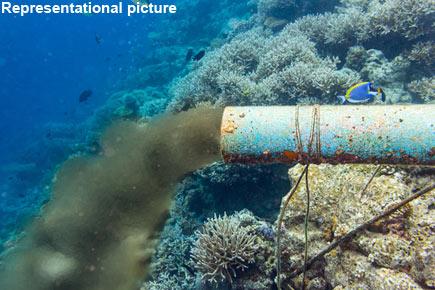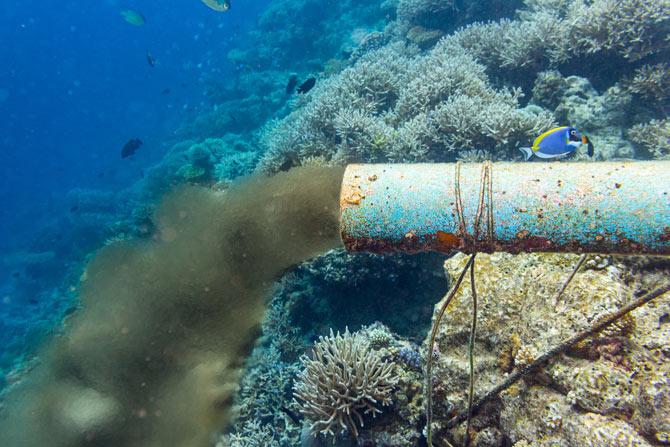A recently conducted global survey has revealed Mumbai's coastline to be among the world's most polluted with sewage amounting to 2,100 million litres a day (MLD) getting disposed into the Arabian Sea and the creeks

Sea around Mumbai filthy; 2,100 million litres human waste dumped daily

Representational picture
ADVERTISEMENT
A recently conducted global survey has revealed Mumbai's coastline to be among the world's most polluted with sewage amounting to 2,100 million litres a day (MLD) getting disposed into the Arabian Sea and the creeks. Seven sewage plants run by the BMC between Colaba, Malad and Bhandup function 24/7 throughout the year.
According to The Times of India, researchers revealed that sewage consisting of human and kitchen waste from homes in and around Mumbai is given basic preliminary treatment before its release 3km into the sea.
The waste of 35 lakh people is handled by the BMC at its sewage treatment plant in Malad, which is considered the worst amongst the seven. After preliminary treatment, which the plant is equipped for, the sewage is directly discharged in Malad creek. This has raised environmental concerns since the dissolved oxygen (DO) level has gone to zero.
Waste from Charkop, Gorai, Shimpoli, Goregaon and Dahisar is handled and disposed of in Malad.
Things are no different in the waste water sewage treatment plant at Bandra Reclamation.
A similar study conducted in April, mapping marine pollution from around the world had some startling findings. According to the researchers, the seas near Mumbai, Kerala and the Andaman and Nicobar Islands are among the world's most polluted.
The database compiled by the research team analysed the plastic debris on Mumbai's beaches. It was discovered that microplastics ranging in size from 1m to 5m were present on an average of 68.83 items a sqm at four beaches – Juhu, Versova, Dadar and Aksa, which amounts to 41.85%.
 Subscribe today by clicking the link and stay updated with the latest news!" Click here!
Subscribe today by clicking the link and stay updated with the latest news!" Click here!






